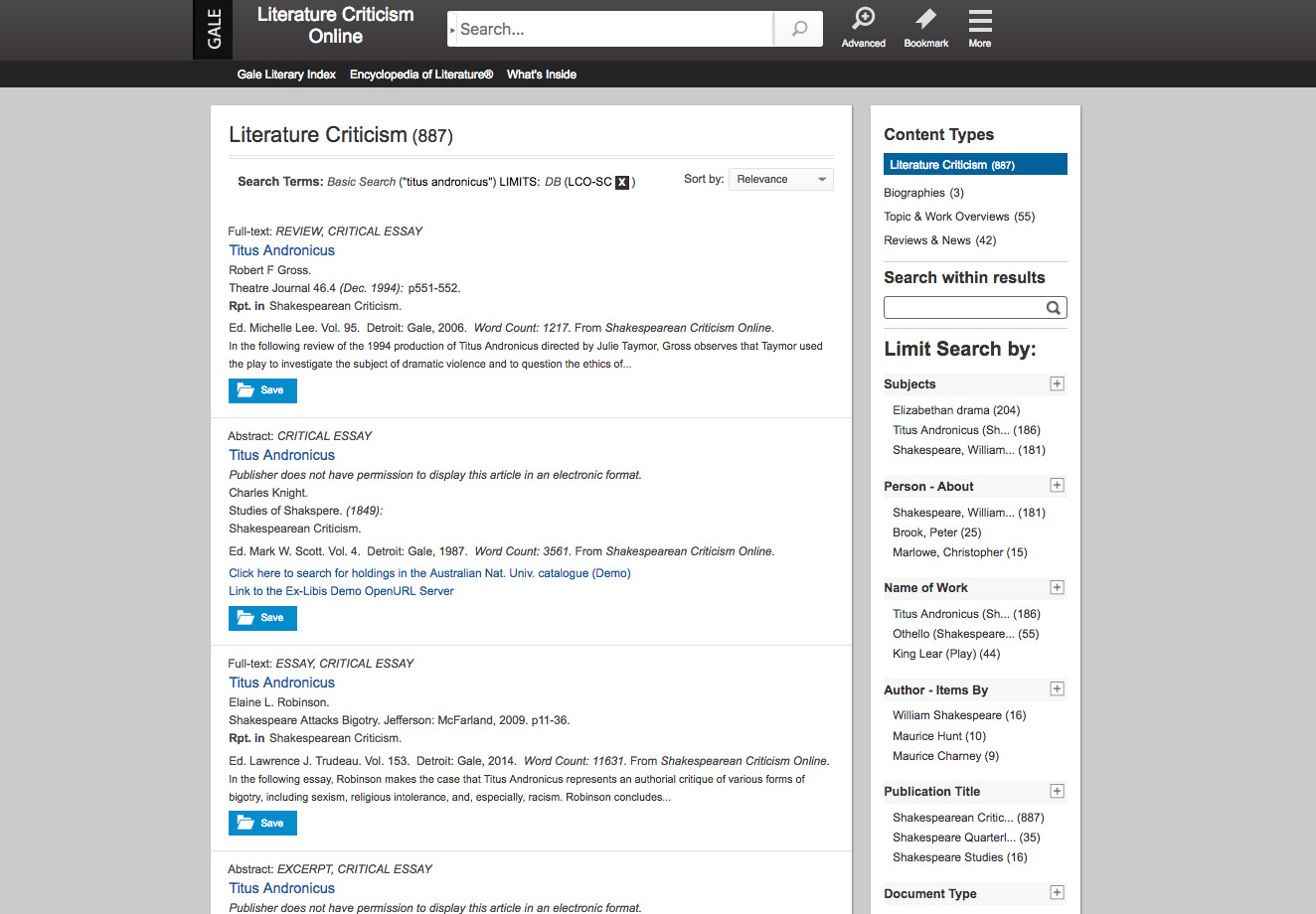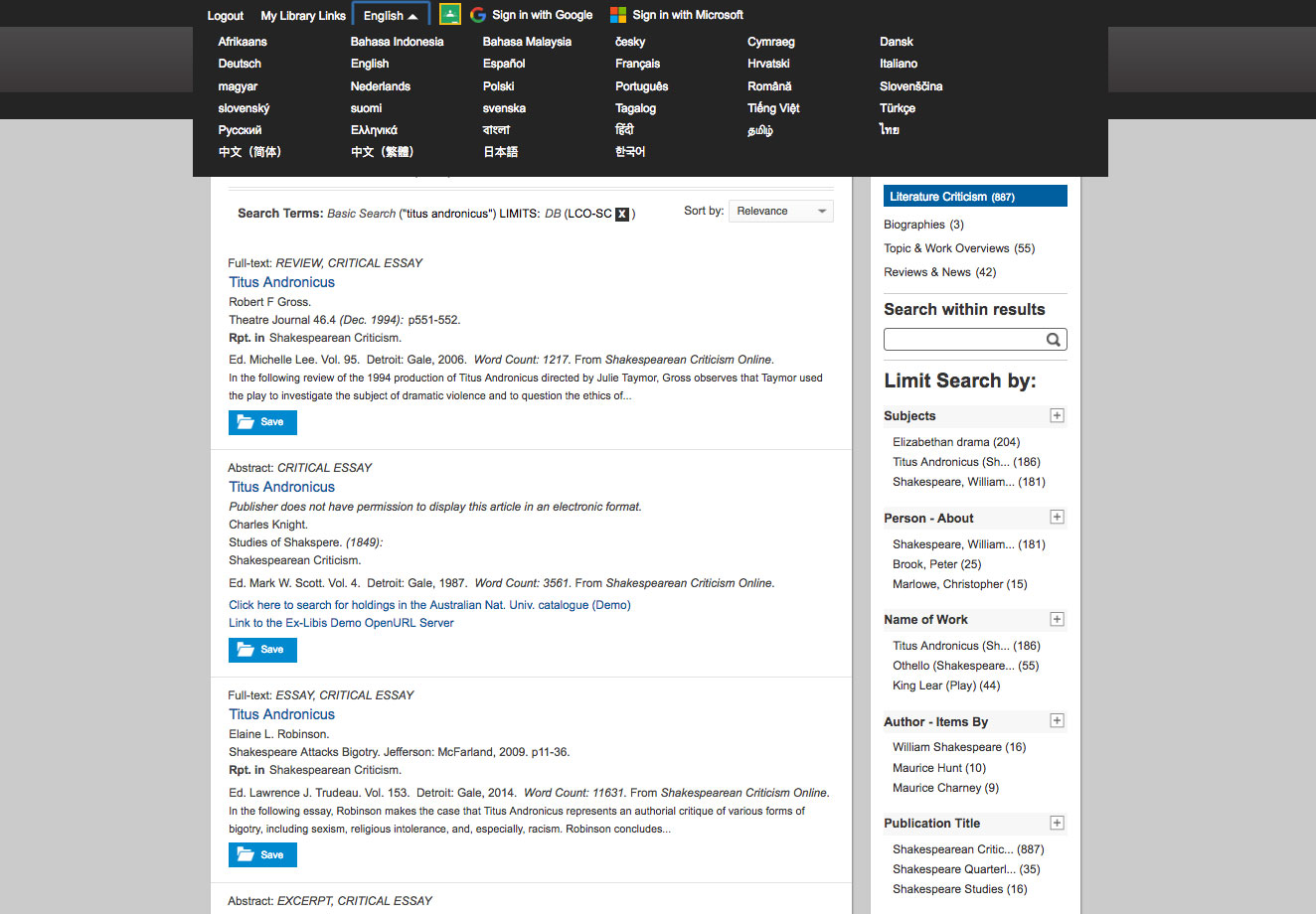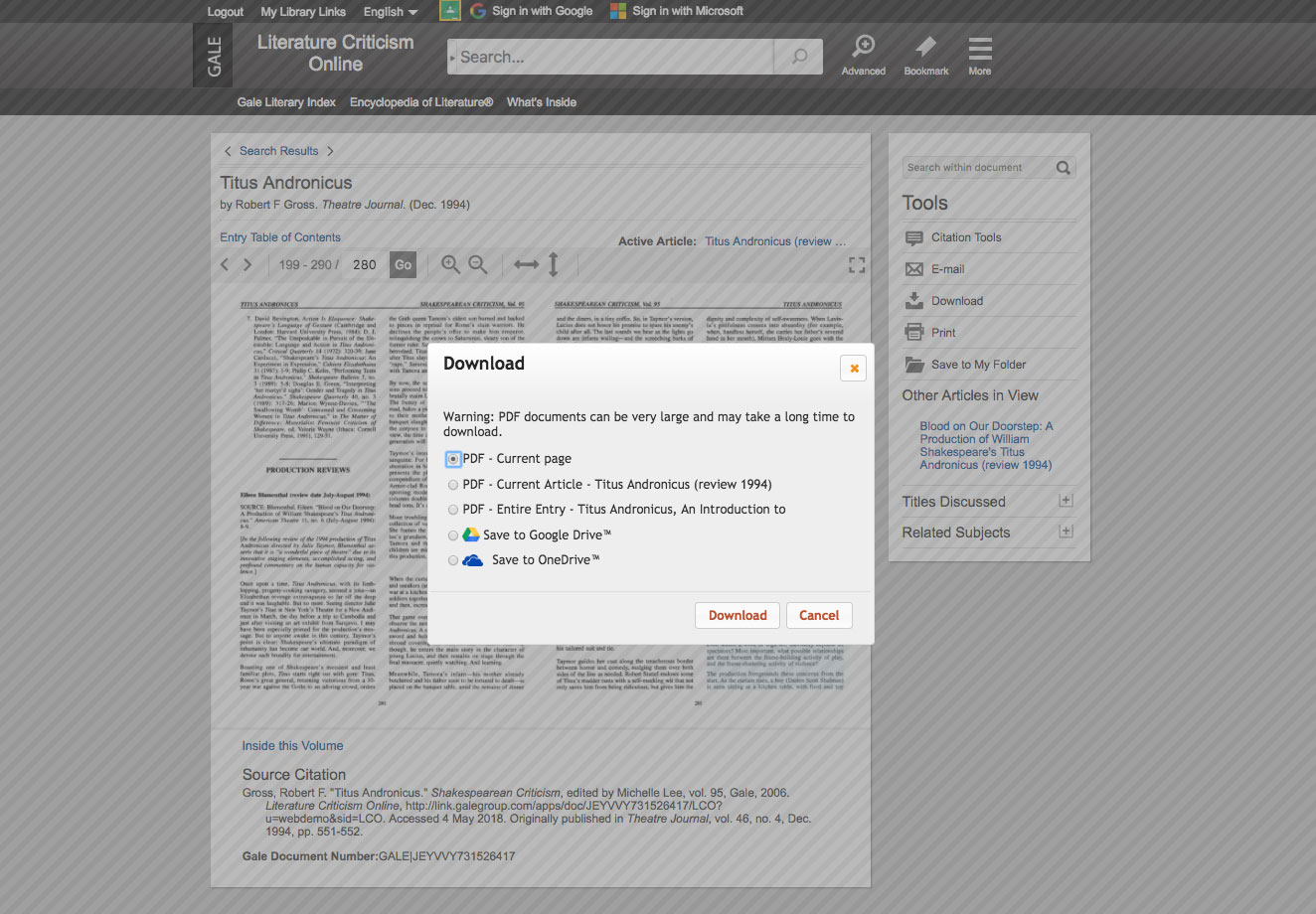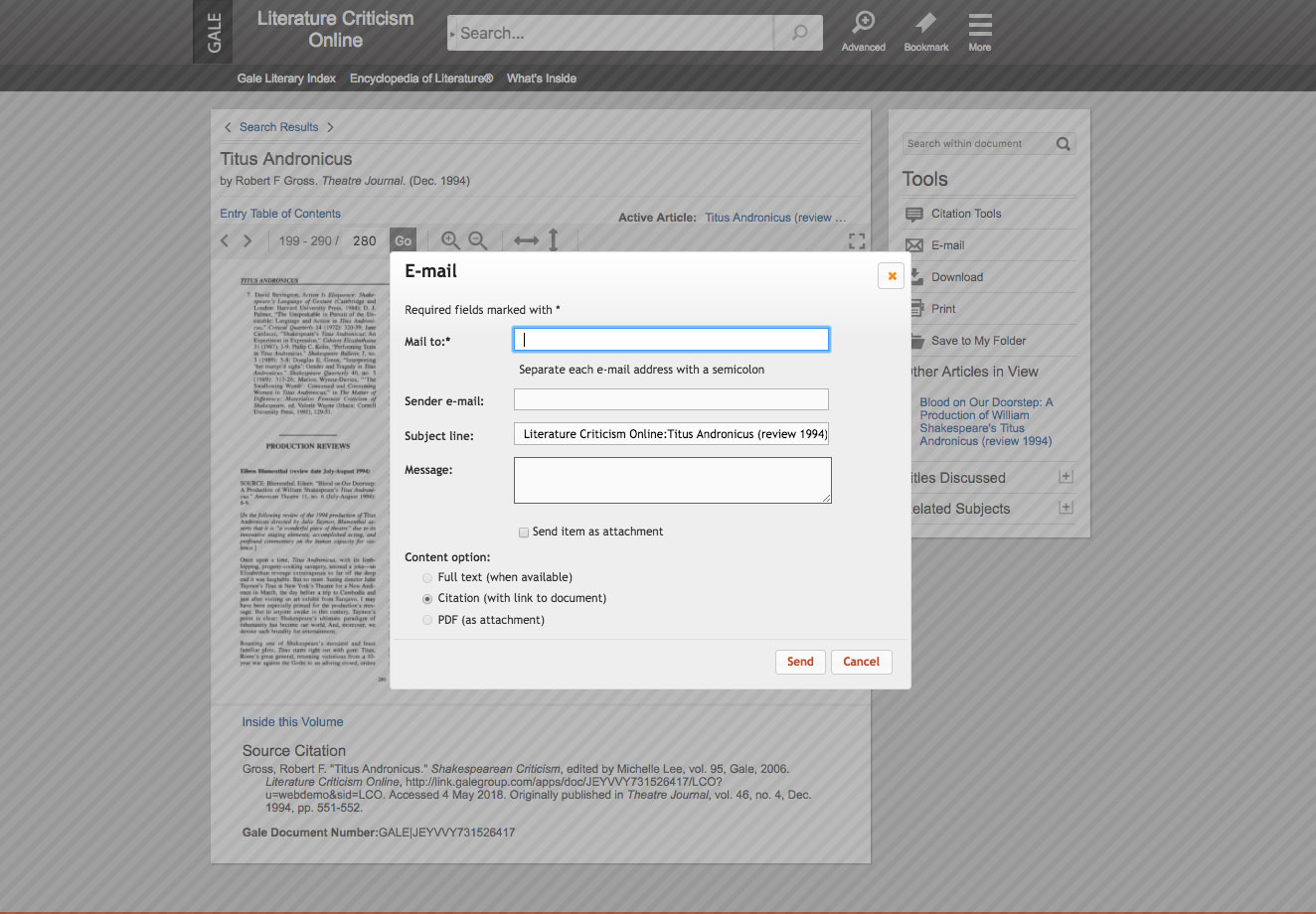Enable New Insights into the Works of Shakespeare
Shakespearean Criticism through Literature Criticism Online, provides comprehensive coverage of critical interpretations of the plays and poems of William Shakespeare, providing students, educators, theatregoers, and other interested readers with valuable insights. Clear, accessible introductory essays followed by carefully selected critical responses allow end-users to engage with a variety of scholarly views and critical conversations about Shakespeare’s works as literature and in performance.
Students and teachers at all levels of study will benefit from this series, whether they seek information for class discussion and writing assignments, new perspectives on Shakespeare’s works or the most noteworthy analysis of his legacy.
- Volumes 1–10 present critical overviews of each play and feature criticism from the 17th century to the present.
- Volumes 11–26 focus on the history of Shakespeare's plays on the stage and in major film adaptations.
- Volumes 27–56 focus on criticism published after 1960 and include topic entries that deliver thematic approaches to Shakespeare's works.
- Starting with Vol. 57, the series provides general criticism published since 1990 and historical criticism not featured in previous volumes, with 4-5 plays or works covered per volume. Some volumes contain topic entries.
Until volume 48, Shakespearean Criticism compiled an annual volume of the most noteworthy essays published on Shakespeare during the previous year. The essays were recommended to Gale by an international panel of distinguished scholars.
Look Inside
Additional Details
subjects covered
- Drama Studies
- English Language
- English Literature
- Linguistics
- Literature
- Theatre Studies
- Theology, Divinity and Religious Studies (don't use)
Platform Features & Tools
Collaboration Tools
Integrated G Suite for Education and Microsoft Office 365 tools enable users to share, save, and download content—including highlights and notes.
Term Frequency
Researchers can see the frequency of search terms within sets of content to begin identifying central themes and assessing how individuals, events, and ideas interact and develop over time.
Topic Finder
By grouping commonly occurring themes, this tool reveals hidden connections within search terms—helping to shape research by integrating diverse content with relevant information.











